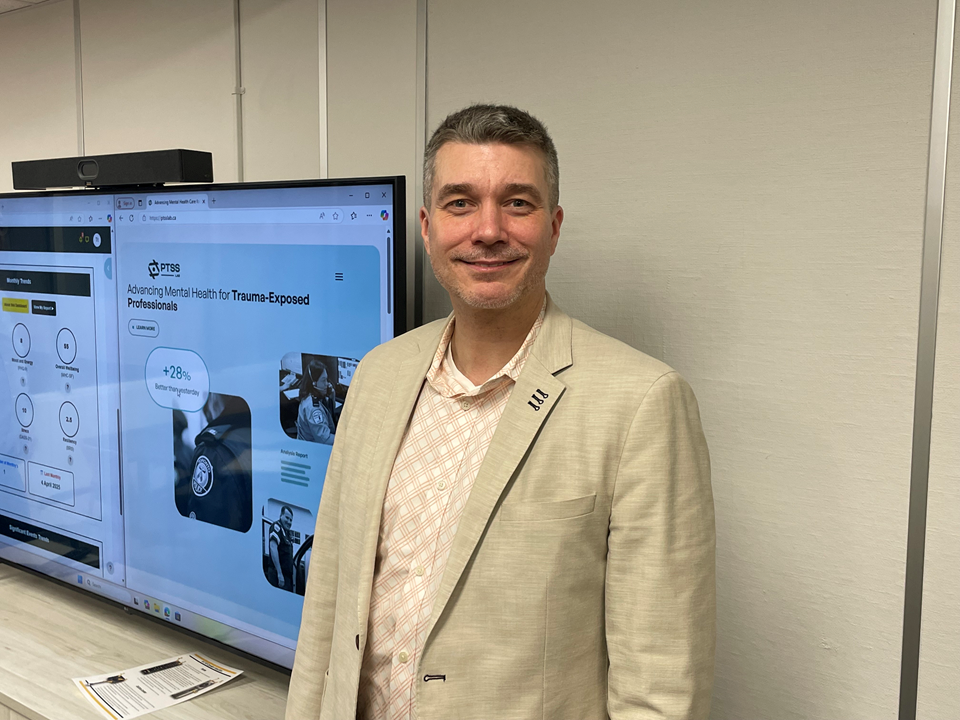REGINA - The University of Regina (U of R) has created a new monitoring system that will help first responders better understand their mental well-being.
The idea for the system came back in 2016, when the RCMP wanted to provide better mental health support for their staff, said Dr. Nick Carleton, psychology professor at the U of R.
After nine years of trial and error, Carleton described one of the biggest challenge as making a system which would work for the RCMP and other public safety personnel.
To ensure this, Carleton’s team needed to work with frontline staff to develop a system.
From their research, Carleton found "nearly one in two serving officers and all the way up to two out of three serving public safety personnel may be having mental health challenges."
With their research and data collected, the U of R, in collaboration with WorkSafe Saskatchewan, launched the system in April. Some agencies have already signed on for the system, including the Saskatchewan Marshal Service (SMS)
"We are striving to build an organizational culture where taking care of our mental and physical health is not only encouraged but expected," said Cara Burrows, director with the SMS.
First responders will check their mental health through three different levels.
The first is a daily check, which lets them "reflect on the challenges they've faced, their experiences, mood, engagement, sleep [and] how they're coping over the last 24 hours," said Carleton.
There is also a monthly check-in, which screens people for a variety of mental health disorders.
The last screening is a one-year outlook. "This gives workers a full picture of what their mental health looks like and the opportunities that they have to better support themselves," he said.
If a worker is recommended mental health support, the university will provide them with resources available.
As the SMS will focus on real crimes like drugs or weapons, Burrows said it’s important for organizations to shift to self-care with the trauma first responders face.
Burrows also noted that opening up your emotions can make someone more empathetic and responsive to one's feelings.
Carleton believes the system can continue the huge shift in mental health stigma seen with first responders over the past few years.
"We're breaking down the stigma, and we're making it slowly easier for people to access mental health care and to report that they're having a mental health challenge."
While Carleton said it’s shifting in a positive direction, changing a culture can take time.
He also admitted there could be a concern that first responders don’t give themselves an accurate self-report.
Carleton said an agency will track the overall mental health of their organization rather than a specific person.
Along with the SMS, Carleton said they have other organizations they’re working on contracting out the system but couldn’t disclose who.
The current system is a three-year pilot project.
Carleton hopes the system “is going Canada-wide and have multiple provinces and agencies involved well within the next three years.”
He also mentioned having the system in place for healthcare workers in the future.




